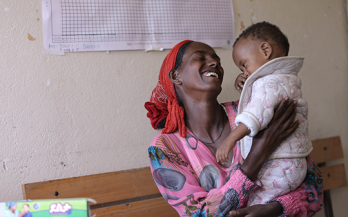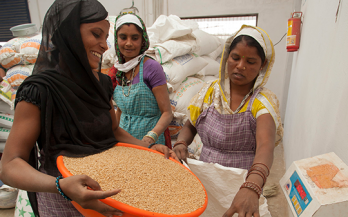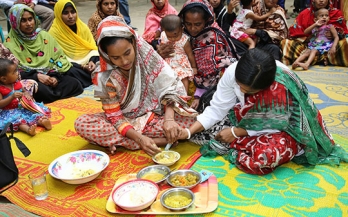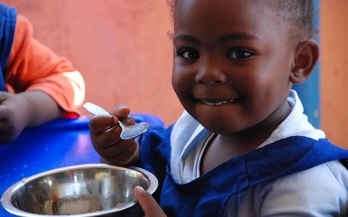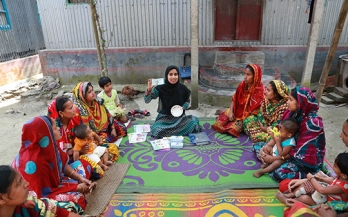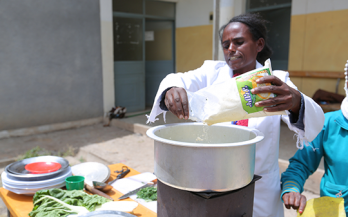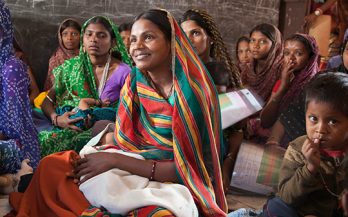- 01/10/2011
As a highly bioavailable iron compound, sodium iron (iii) ethylenediaminetetraacetate (NaFeEDTA) has been recommended as a food additive for fortification. The objective of this study was to calculate the dosage of NaFeEDTA for fortifying complementary foods assuming different population prevalences of underweight.
- 01/12/2012
The objectives of this paper are to provide information on the costs of adding different chemical forms of iron and/or other micronutrients to premix formulations, and to discuss some of the issues that should be considered regarding which micronutrients to include in the premix.
- 17/03/2017
The objective of this chapter is to describe and discuss the latest advances related to the composition and delivery of fortified complementary foods products, including home and commercial fortification.
- 01/11/2014
Fortification of staple foods is the cheapest, most efficient and most effective way to supply large populations with essential micronutrients. This paper reviews the case for fortification of flour supplies with iron and folic acid and concludes that it is the best way to provide daily doses of these nutrients to populations in developing countries, especially for women of child-bearing age.
- 13/09/2017
This paper focuses on how micronutrient powder interventions undertook key elements of programme improvement, specifically, the use of programme theory, monitoring, process evaluation, and supportive supervision. Methods included a review of published and grey literature, interviews with key informants, and deliberations throughout the consultation process.
- 13/09/2013
This paper focuses on programmatic experiences related to micronutrient powders delivery, social and behaviour change communication, and training. Methods included a review of published and grey literature, interviews with key informants, and deliberations throughout the consultation process.
- 13/09/2017
The objectives of this study were to identify and summarize the most recent micronutrient powders (MNP) programme experiences and lessons learned for operationalizing MNP for young children and prioritize an implementation research agenda.
- 02/10/2015
More than 80 countries fortify flour, yet the public health impact of this intervention on iron and anemia outcomes has not been reviewed. The objective of this systematic review was to review published and gray literature pertaining to the impact of flour fortification on iron and anemia.
- 21/08/2017
The purpose of the study was to examine whether access to an at-scale, group-based parenting education program (“Educación Inicial”) had differential effects on parenting behaviors and child cognitive development according to mother's age at the birth of her first child, with a focus on adolescent mothers in rural Mexico.
- 24/11/2015
Accurate data on nutrition and health is largely lacking in many countries, which compromises the targeting of nutrition interventions to those in need. The objective of this study was to highlight the lack of data available to measure and track micronutrient status.
